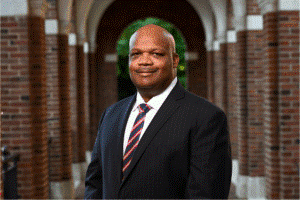
AFRO Agent of Change: how entrepreneur Matthew Reeds is improving health literacy in the Black community
By Jannette J. Witmyer,
Special to the AFRO
During his senior year as an undergraduate at Morgan State University, Matthew Reeds began laying the groundwork for a nonprofit organization. It was 2017, and his mission was to address what he described as “insufficient government and healthcare services in Baltimore.”
Reeds had seen his sister and mother, as well as many other Blacks, struggle with severe health issues. His sister was autistic and his mother was combating sarcoidosis.
Two years later, after graduating from Morgan’s Earl G. Graves School of Business and Management (BS degree in Information Science and Systems), he officially launched the Reeds Autism and Sarcoidosis Fund. At 23 years of age, as founder and executive director, he established himself as an agent of change, focused on finding ways to help resolve those health concerns.
Why did he feel the need to personally start a nonprofit?
“Originally, family was definitely the inspiration to start the fund and foundation,” he said, adding, “Before starting it, I tried to work with larger organizations that already existed and noticed that in the autism space, there was a gap for Black families. It seemed like there was a heavy emphasis on other nationalities, like their families. So, I started it.”
Autism spectrum disorder (ASD) is a developmental disability, according to the Centers for Disease Control and Prevention. People with ASD often have problems with social communication and interaction, and restricted or repetitive behaviors or interests.
According to information released by the National Library of Medicine, sarcoidosis is a rare condition that causes small patches of swollen tissue, called granulomas, to develop in the organs of the body, often affecting the lungs and lymph nodes.
While ASD is reported to be highest among non-Hispanic White children, studies show Black women in the U.S. are not only three times more likely to develop sarcoidosis than White women and White men, they also have a 10 to 18 times higher hospitalization rate and 12 times higher mortality rate.
Reed’s organization aims to engage and educate the general public about both autism and sarcoidosis.
“Our team works to either cultivate events throughout the city to raise awareness, or we partner directly with families, targeting the Black community,” Reed said. “We basically schedule [time] with them and talk through any issue that they’re experiencing and how we can be of help to navigate them through the resources.”
This month, it hosts an annual workout event, Step for Sarcoidosis, 10 -11 a.m., January 21, 2023.
“We do this event to raise awareness around sarcoidosis, but also as something actionable—doing a workout together as a community to help understand the benefit [of exercise] and to just increase their overall health.”
In April, which is National Autism Awareness Month, the fund will host Artists for Autism—an event designed to raise awareness and shine a spotlight on adults who are autistic.
Reeds is especially proud of the Reeds Fund’s Roxanne L. Reeds Scholarship, named in honor of his mom. It assists individuals on the autistic spectrum or diagnosed with sarcoidosis, who are interested in pursuing higher education, a certificate program, and numerous other educational pursuits. He says that his mother was an educator, but she retired early due to sarcoidosis health-related ailments. Still, she lovingly embraced the act of adopting his sister, who is autistic.
It is through his mother, Roxanne, a first-generation college student who graduated from Coppin State University, that Reeds said he grew up understanding a sense of community.
The experience and his mother’s guidance nurtured a commitment to hard work and giving. He made the Dean’s List and was named a “most outstanding student” throughout the four years of his matriculation. He also served as Student Regent on Morgan’s Board of Regents.
Of his mother, he said, “thankfully, she’s healthy now,” and points to others who can benefit from greater support.
“To date the fund has awarded over $3,000 in scholarships, donated over 300 hours of combined volunteer consultations to families with a family member who has autism, and the community events have attracted over 170 unique Baltimore city residents.”
But Reeds’ work does not end with the Reeds Fund. In 2020, he became one of three partners behind the new Baltimore Legacy Builders Collective, in efforts to help facilitate connections between the collective and Baltimore’s philanthropic communities. He now serves as an advisor.
Reeds, 27, and recently married, is on track to complete his MBA at the Johns Hopkins Carey Business School. And with the knowledge that the Reeds Fund has made a difference to each individual it has touched, in 2023, he says he plans to continue his work by helping to build sustainable organizations within the African-American community.
In response to being called a change agent or change maker, he said, “I think anyone can really be a change maker. And that doesn’t necessarily have to be some fancy title, school or position or whatever. I think that the people making the change are the people who live a life of service and gratitude to others. So, the people that I’ve tried to surround myself with in life have that attitude.”
For information about supporting the Reeds Fund and its efforts, visit https://givebutter.com/reedsfund.
Help us Continue to tell OUR Story and join the AFRO family as a member –subscribers are now members! Join here!
The post AFRO Agent of Change: how entrepreneur Matthew Reeds is improving health literacy in the Black community appeared first on AFRO American Newspapers .
This article originally appeared in The Afro.








